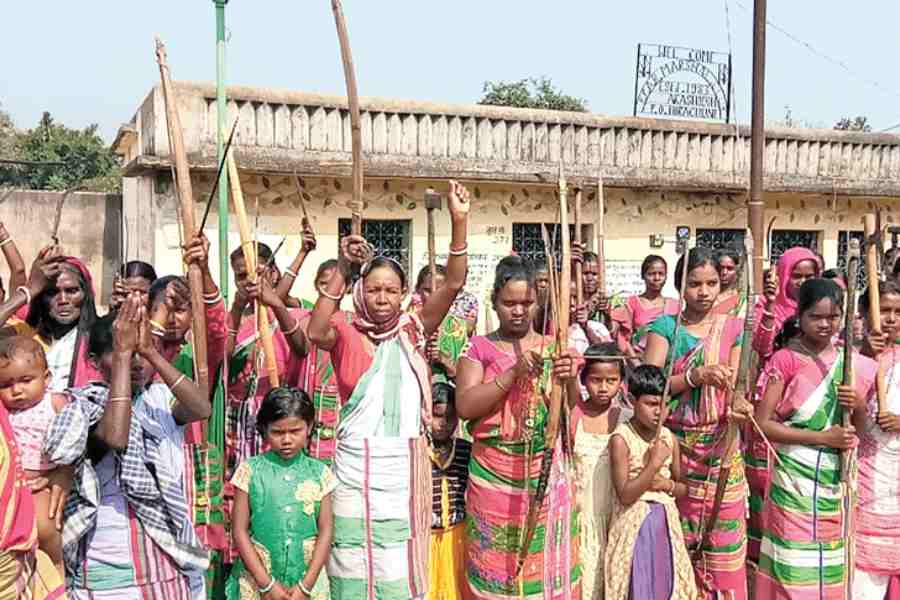The Hindu Succession Act, 1956, a part of the original Hindu Code Bills, was an attempt to do away with the practice of the son’s exclusive claim on ancestral property. But Section 2 (2) under HSA excludes scheduled tribes from the scope of Act. The reason for the clause was to preserve indigenous identity. In post-independent India, with high incidents of communal tension, it was deemed rational to not put the STs under the umbrella of Hindu laws.
Tribal women often slip through the cracks of multiple laws that govern their access to land and property, thereby denying them their right of inheritance. The case of exclusion under HSA has been followed as practice in other succession laws such as the Indian Succession Act, 1925, wherein states like Bihar have excluded tribes from the application of law through gazetted notifications. The justification for the exemption of STs as outlined in Section 2 (2) of the law contradicts the fundamental objective of the HAS and perpetuates the denial of equal inheritance rights to Adivasi women.
Adivasi women experience systemic discrimination in society for two reasons. First, they are at a considerable disadvantage since they belong to a section of society that is often socially and geographically segregated. Second, their marginalisation — the result of gender-based oppression — is compounded by a rigid social structure and patriarchal norms that prevent them from asserting their rights to claim an equitable share of ancestral property.
Low literacy rates pose another barrier. A study on Telangana’s tribal communities revealed extremely low literacy rates — 11% among elderly men and 0.67% among elderly women. High illiteracy implies that most elderly STs do not understand the importance of drafting wills. As a result, a significant number of tribal elders pass away without leaving a valid will, leading to inequitable distribution and exacerbating their reliance on intestate succession laws and customs in the absence of any codified law governing intestate succession.
The evolution of inheritance rights of tribal women has been contingent upon judicial interventions. Instead of direct entitlement, tribal women have been granted succession rights through a judicial innovation known as the ‘test of Hinduisation,’ as established by the Chhattisgarh High Court in Butaki Bai versus Sukhbati. In this case, the court outlined specific requirements for tribal women to benefit from the provisions of the HSA. It mandated that the plaintiffs must demonstrate both the abandonment of their customary laws and the adoption of Hindu practices to be governed by the laws of succession and inheritance under any school of Hindu law.
The existing legal framework and judicial precedents, therefore, exhibit a two-fold approach towards addressing the rights of tribal women. On one hand, the State displays hesitancy in acknowledging tribal women’s right of survivorship driven by concerns surrounding kinship, tribal culture, and deeply ingrained gender norms. On the other hand, the judiciary has endeavoured to incorporate STs into the ambit of the HSA. However, both these approaches encounter practical challenges. While the State’s inclination to maintain the status quo can be detrimental to the legitimate interests of Adivasi women, the other approach undermines the distinct identity of the tribes which is safeguarded by the Fifth and Sixth Schedules of the Constitution. The pursuit of a balanced solution that protects tribal women’s rights while respecting the constitutional safeguards granted to the tribes is of paramount importance. Achieving a delicate balance between gender equality and cultural heritage would necessitate thorough deliberation and the implementation of legal reforms on the part of the Union law ministry that must consider the distinctive circumstances and aspirations of tribal communities while addressing this issue.
Prithvi Raj Chauhan and Mihir Nigam are students at the National Law University, Jodhpur










